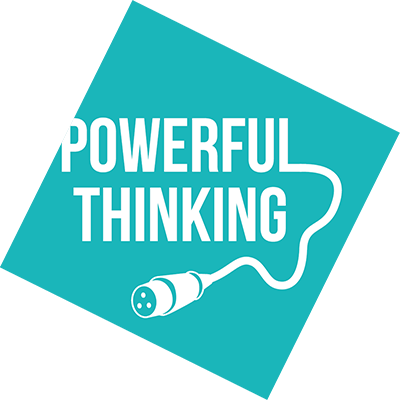About this fact sheet
The Association of Festival Organisers (AFO) and Powerful Thinking have developed this factsheet to provide inspiration for small events organisers who wish to reduce environmental impacts associated with their power usage. The AFO is a membership group of like-minded festival and event managers who believe in learning and teaching, sharing and networking to continuously improve the festival scene.
Why Consider Energy Usage?
- The UK Festival Industry uses in excess of 12million litres of diesel annually
- 99% of UK outdoor event power is derived from diesel generators (The Power Behind Festivals, 2012)
- Power can represent up to 70% of an event’s carbon emissions (excluding audience travel)
- Research suggests wasteful energy management is common at UK events
- Efficient energy management can lead to costs savings
Five Easy Steps To Greener Power:
1. Know Your Power
Power is often an area that festival organisers have not taken the time to investigate (we are busy people!), but it may be worth doing so in order to help achieve reductions in costs and emissions, whatever type or scale of event you are managing.
Top Tip: You can find comprehensive and free information about managing energy at outdoor events at www.powerfulthinking.org.uk, which includes a 30-page guide to energy management for events, case studies and the full Energy fact sheet series.
2. Reduce Power Demand
Look at how power is currently being managed and consumed. Some events will have good information about previous years from their power provider, and others will have nothing. Either way, begin the conversation with your power provider(s) about opportunities to reduce demand – who is using power and can they reduce usage? Often traders and lighting companies can reduce their requirements, and in many cases end-users of power ask for more than they actually need which can result in significantly oversized generators, unnecessary costs and avoidable fuel consumption.
Top Tip: Ask your power provider to contact all end users to find out their real requirement as part of your contract with them. It may cost extra for this service, but the savings will likely outweigh this as a result of the confidence in specifications leading to smaller generators and less fuel usage.
3. Consider Renewable Sources
Solar, WVO biofuel (reprocessed waste vegetable oil – WVO) and wind power are all renewable energy sources, and are carbon zero-rated.
Solar and or hybrid (or even pedal power) systems can often be good solutions for:
- Small to medium sized music stages – a very visible demonstration of commitment to renewable power
- Campsite lighting e.g. LED festoon – these run silently so will make for happy campers
- Box offices – the first point of contact for most attendees, often have low power needs, and may be in outlying areas where power isn’t otherwise provided
- Production compound – first area set up and last to leave, so great opportunity for fuel saving over a longer time period
- Pumps for on-site water management and distribution
- Overnight on stages when lower power supply is required
Top Tip: When comparing prices, remember that there is no fuel costs to add on for solar or wind solutions.
Check the GreenArts marketplace for green power suppliers across the UK – www.greenartsmarketplace.com, and for detailed information about power types please see other Powerful Thinking fact sheets.
4. Make A Plan
Develop an aim or target – this might be to reduce fuel consumption by 10% a year for 3 years, or to use a designated percentage of renewable power. Work with your power provider to decide how best to achieve this, and accept that it may take more than one year to make fundamental changes to your approach. In some cases you may have to take the initiative if a secondary supplier is needed or the current supplier is reluctant to change the way they work.
Remember that the overwhelming evidence is that most events can reduce fuel consumption, and many have already achieved significant reductions.
Top Tip: Use the contract between you and the power provider to make clear the targets you expect to meet, and to introduce new elements such as LED festoon.
5. Monitoring, Reporting and Communication
Good information is vital for making rational decisions about improving efficiency and reducing fuel consumption year-on year.
Stipulate that you require a post-event report as part of the contract with at least the following information:
- Monitoring information for each generator showing power load vs capacity
- Final map of generator locations with sizes for reference in planning
- Recommendations for efficiency saving in next year
A recent study by Bucks New University and A Greener Festival (2012) discovered that 90% of the audience surveyed think that environmental performance is the responsibility of the organisers. So if you are making an effort to be more sustainable, remember to shout about it!
Top Tip: Stipulate a detailed post-event report on power management.
